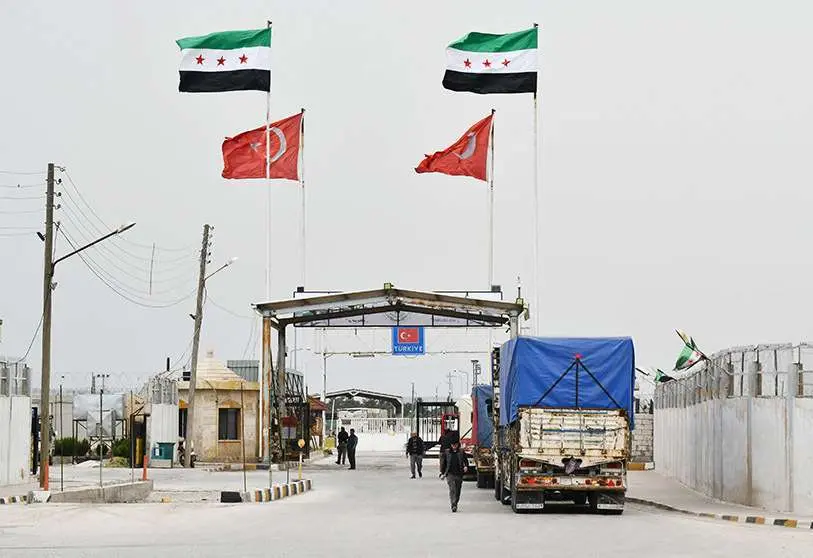Syria will open border crossings to facilitate humanitarian assistance

Seven days after the earthquake, the government of Bashar al-Assad agreed to temporarily open two additional border crossings between Turkey and the northwestern part of the country under opposition control. A waiting period that has resulted in more than 4,500 dead and tens of thousands injured. Humanitarian aid arrives in northwest Syria, but not that offered by Assad's partners.
Opening the Bab Al-Salam and Al Ra'cee crossing points from Turkey has cost the UN intense international calls to do so and a desperate meeting with the Syrian president to get aid to millions of quake victims. UN humanitarian chief Martin Griffiths announced the three-month opening of the two border crossings after a closed-door meeting with al-Assad in Damascus. A triumph that was celebrated by the international community and by the UN Security Council itself: "As the number of victims of the 6 February earthquake continues to rise, the delivery of food, health, nutrition, protection, winter shelter and other vital supplies to the millions affected is of the utmost urgency," said Antonio Guterres, the UN secretary-general.

However, aid is arriving late and taking lives. Griffiths has already lamented this, saying it has failed the people of northwest Syria who "are looking for international help that has not arrived". Despite the fact that the UN was only authorised to use the single Bab al Hawa crossing, the White Helmets, the volunteer rescue group in this opposition region, has complained that it has not received UN aid and that the little that has arrived has only covered the needs of 5% of the affected population in the region and did not include material necessary for rescuing victims. "The UN bureaucracy participated in the slaughter of the Syrian people," said the leader of the rescue group, Raed Saleh.
But the situation is complicated, especially for a country and a region that has been suffering the ravages of a twelve-year civil war. There are more than four million displaced people in the area - already dependent on humanitarian aid before the quake - and more than a million were crowded into refugee camps, according to UN figures. The structures of many homes were already damaged by the continuous bombardment of the war, and the 7.8 Ritcher scale earthquake brought them down completely.

Twelve years of conflict in which precisely this humanitarian aid has been an important weapon of war for Bashar al-Assad by preventing it from reaching the northwest of the country. A situation that forced the UN to establish in 2014 the direct crossing of Bab al Hawa for the direct delivery of aid without the approval of the Syrian Executive, and although the organisation has been demanding more access for years, al-Assad has denied them all until now.
Despite the time that has passed, this humanitarian aid remains another weapon for al-Assad. In his first statements after the earthquake, the Syrian president called on the West to lift the sanctions imposed since 2011 in order to deal with the catastrophe. However, neither the EU nor the US have given in to blackmail, stating that the sanctions imposed would not hinder the delivery of aid.

In the meantime, aid is reaching the Syrian government-controlled area, although not comparable to what Turkey has received since the earthquake struck the east of the country. Russia, China, Iran and several Arab countries, all partners of Damascus, have come to participate in rescue efforts in Latakia, Aleppo and Hama. Lives are worthless to Bashar al-Assad if they are opposition.








